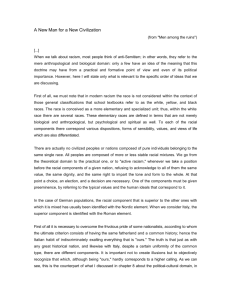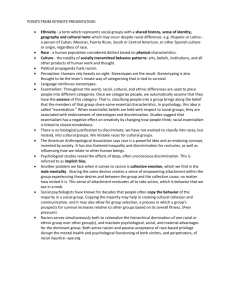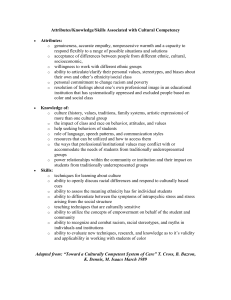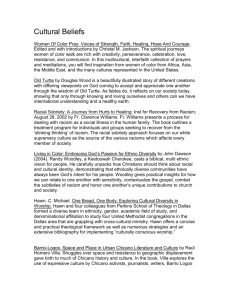Alternate Article- Race Relations
advertisement
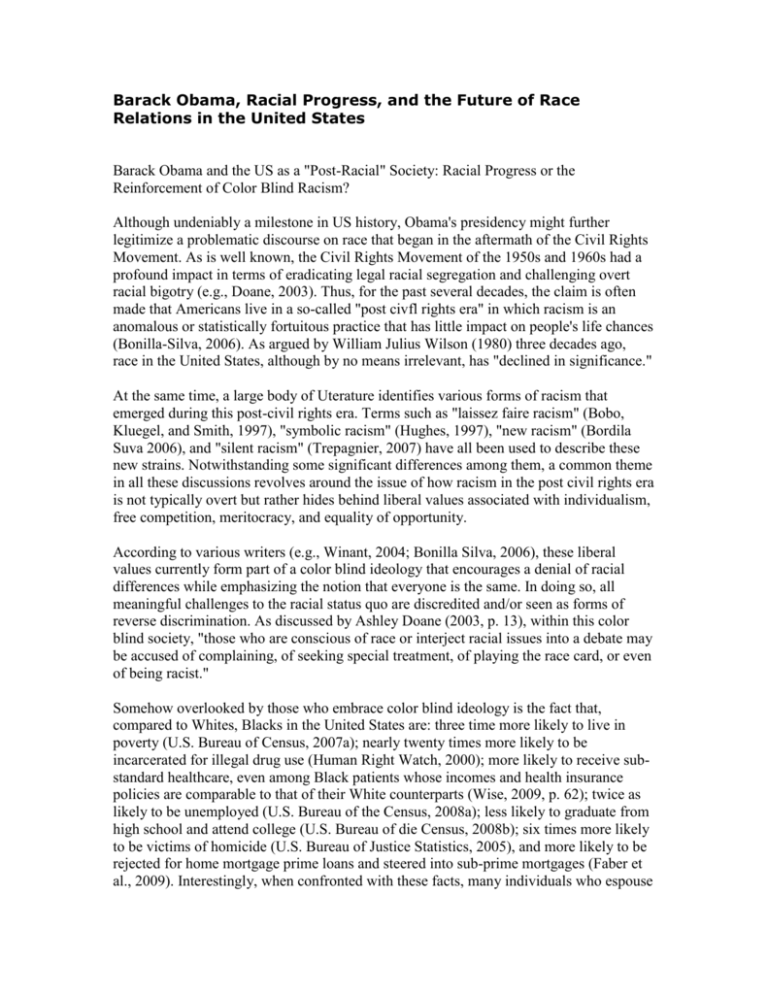
Barack Obama, Racial Progress, and the Future of Race Relations in the United States Barack Obama and the US as a "Post-Racial" Society: Racial Progress or the Reinforcement of Color Blind Racism? Although undeniably a milestone in US history, Obama's presidency might further legitimize a problematic discourse on race that began in the aftermath of the Civil Rights Movement. As is well known, the Civil Rights Movement of the 1950s and 1960s had a profound impact in terms of eradicating legal racial segregation and challenging overt racial bigotry (e.g., Doane, 2003). Thus, for the past several decades, the claim is often made that Americans live in a so-called "post civfl rights era" in which racism is an anomalous or statistically fortuitous practice that has little impact on people's life chances (Bonilla-Silva, 2006). As argued by William Julius Wilson (1980) three decades ago, race in the United States, although by no means irrelevant, has "declined in significance." At the same time, a large body of Uterature identifies various forms of racism that emerged during this post-civil rights era. Terms such as "laissez faire racism" (Bobo, Kluegel, and Smith, 1997), "symbolic racism" (Hughes, 1997), "new racism" (Bordila Suva 2006), and "silent racism" (Trepagnier, 2007) have all been used to describe these new strains. Notwithstanding some significant differences among them, a common theme in all these discussions revolves around the issue of how racism in the post civil rights era is not typically overt but rather hides behind liberal values associated with individualism, free competition, meritocracy, and equality of opportunity. According to various writers (e.g., Winant, 2004; Bonilla Silva, 2006), these liberal values currently form part of a color blind ideology that encourages a denial of racial differences while emphasizing the notion that everyone is the same. In doing so, all meaningful challenges to the racial status quo are discredited and/or seen as forms of reverse discrimination. As discussed by Ashley Doane (2003, p. 13), within this color blind society, "those who are conscious of race or interject racial issues into a debate may be accused of complaining, of seeking special treatment, of playing the race card, or even of being racist." Somehow overlooked by those who embrace color blind ideology is the fact that, compared to Whites, Blacks in the United States are: three time more likely to live in poverty (U.S. Bureau of Census, 2007a); nearly twenty times more likely to be incarcerated for illegal drug use (Human Right Watch, 2000); more likely to receive substandard healthcare, even among Black patients whose incomes and health insurance policies are comparable to that of their White counterparts (Wise, 2009, p. 62); twice as likely to be unemployed (U.S. Bureau of the Census, 2008a); less likely to graduate from high school and attend college (U.S. Bureau of die Census, 2008b); six times more likely to be victims of homicide (U.S. Bureau of Justice Statistics, 2005), and more likely to be rejected for home mortgage prime loans and steered into sub-prime mortgages (Faber et al., 2009). Interestingly, when confronted with these facts, many individuals who espouse post-racial/color blind ideology are quick to claim that these inequalities are not "racial" problems but rather products of racially neutral considerations such as differences in lifestyles, individual determination, financial literacy, personal responsibility, and moral values. In short, even if racial inequalities persist, these outcomes reflect differences in values, individual ability, and personal choices as opposed to racial barriers. The pervasiveness of color blind ideology is exempfified by the fact that racism in most pubtic discussions is typically identified as something synonymous with atypical and reprehensible acts perpetrated by irrational bigots. A focus by the mainstream media on stories about isolated racial hate crimes or scandals involving celebrities who are caught making racist slurs are examples of this proclivity. People, in effect, are chastised and ridiculed when they are not "color blind" and display overt forms of racial prejudice or discrimination. Nonetheless, by focusing merely on individual bigots, color blind ideology turns racism into a privatized discourse that overlooks the social basis of this problem (Giroux, 2004). Solutions, therefore, are also typically Umited to the private realm. That is, encouraging individuals to make the necessary personal adjustments to repeal racial animosities is supported by most people, but the need to challenge the foundational structures that continue to support racial inequalities in various areas of social life is too often ignored or overshadowed by the post civil rights emphasis on remaining racially neutral and treating all people as atomized individuals. Esposito, L., & Finley, L.. (2009). Barack Obama, Racial Progress, and the Future of Race Relations in the United States. Western Journal of Black Studies, 33(3), 164-175. Retrieved May 19, 2010, from Platinum Periodicals. (Document ID: 1958226821).
